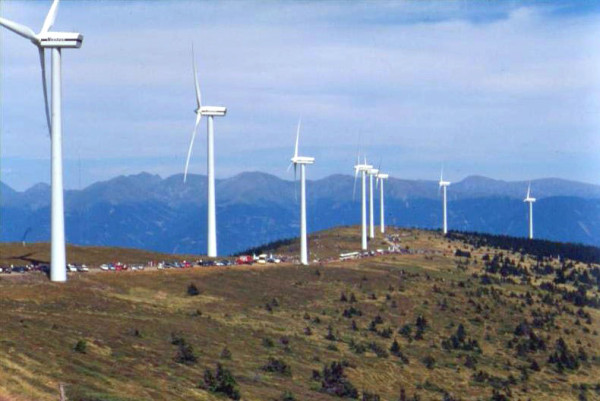Tokyo, 31st January 2014: Local governments across Japan are seeking to supply their regions with 100% renewable energy, three years after the major earthquake which resulted in a nuclear disaster. At the Community Power Conference in Fukushima, the Founding Partners of the Global 100% Renewable Energy Campaign welcome the decision of Fukushima prefecture to be entirely energy self-sufficient by 2040 using only renewable sources. Among them are the Japan-based Institute for Sustainable Energy Policies (ISEP), World Future Council (WFC), World Wind Energy Association (WWEA) and the coordinating organization of the German 100% Renewable Energy region network deENet.
The Great East Japan earthquake, the subsequent tsunami and the disaster at the Fukushima-daiichi nuclear power plant in March 2011 encouraged the people of Fukushima to reassess their energy system and to revitalize industry in the shattered region. “This led to a vision to transition to renewable energy as a pathway forward,” says Tetsunari IIDA, Executive Director of ISEP. Fukushima prefecture now has an official commitment to cover 100% of primary energy demand in Fukushima with renewable resources by 2040.
In the process of revitalizing Fukushima, the authorities have adopted the slogan “Future From Fukushima”. Stefan Gsänger, Secretary General of the World Wind Energy Association, says “In line with the new slogan, it is an important message that Japanese regions are sending from Fukushima when joining the global movement of cities, communities, regions and countries celebrating their recent transition to 100% renewable energy (RE). As we see in an increasing number of places around the world, 100% RE is technically and economically viable.”
“While the national government of Japan prepares for the restart of the nuclear reactors, it is very encouraging to see communities and mayors leading the way in exploring successful planning and implementation strategies towards 100% renewable energy,” says Stefan Schurig, Director Climate Energy of the World Future Council.
The implementation of feed-in tariffs in 2012 triggered the acceleration of renewable energy development in many areas in Japan. In the course of such development, the bottom up approach among local stakeholders has been one of the major driving forces. Members of the Global 100% RE Campaign now highlight the importance of mechanisms and policies that enable local stakeholders to reap the benefits of local renewable resources. “Fortunately, Japan does not have to reinvent the wheel. Case studies from around the world provide valuable experiences and tools to bring socio-economic development by transitioning towards 100% RE. In Germany, a network of 100% RE regions includes 74 regions and municipalities that have already reached 100% renewable energy status,” says Peter Moser, Division Manager for Regional Sustainable Development of deENet.
The Global 100% RE Campaign aims to inspire change by highlighting and visualizing a 100% renewable energy future – a future that is already reality in many regions. By engaging a broad range of stakeholders in the debate, for example through the new campaign website www.go100re.net, Global 100% RE helps to steer the debate on renewable energy towards 100% RE as the new normal.
About the campaign
Global 100% RE is the first global initiative that advocates 100% renewable energy. It connects the fragmented dots of renewable energy advocates to build a global alliance, proving that being powered by 100% sustainable renewable energy is urgent and achievable. This unique campaign builds on projects that are already taking place on national, regional and local levels and steers the global discourse on renewable energy towards 100% RE as the new normal. The goal is to initiate dialogue about 100% RE, build capacity and educate policymakers about the opportunities, case studies and stories that are happening all over the world. For this purpose the campaign aims to establish a global network of 100% RE regions.
Founding partners of the campaign are the World Future Council Foundation (WFC), World Wind Energy Association (WWEA), Fraunhofer-Institute for Solar Energy Systems (ISE), Institute for Sustainable Energy Policies (ISEP), World Bioenergy Association (WBO), International Solar Energy Society (ISES), International Geothermal Association (IGA), DeENet, World Council for Renewable Energy (WCRE) and Renewables 100 Policy Institute.
To learn more and to join the campaign, please visit www.go100re.net or get in touch via info@go100re.net.










